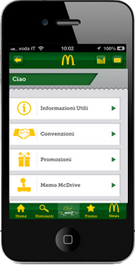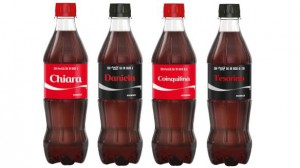Familiar Brands in Unfamiliar Places: How Three U.S. Companies are Making a Global Impact
Companies like McDonald’s, Starbucks and Coca-Cola have made impressions in the U.S. and across the world. The golden arches, the siren in a green circle and red cans are universal symbols, but the way these brands are represented from country to country varies. As public relations practitioners, knowing our audience is essential.
In an interview with John Elsasser, editor-in-chief of PR Tactics and The Strategist, Fred Cook, CEO of Golin, said, “[brands] have to be tuned in to what the consumers are thinking about and talking about and what they want in order to be accepted as part of their life, and part of their lifestyle.”
We must speak concisely, choose our words carefully and understand other cultures to communicate our messages effectively in any country.
McDonald’s

In 2014, Golin helped McDonald’s USA launch “Our Food, Your Questions.” This campaign allowed customers to tweet to @McDonalds asking anything about their menu and receive an honest response about the preparation of food and ingredients used.
McDonald’s Italy participated in a restaurant expo in Milan and used the hashtag #IMLOVINEXPO. The event informed consumers of their food, its production process and distribution, with emphasis on the freshness and nutritional value of their food and well-being of their employees.
McDonald’s Italy also has an app called McDrive designed for the promotion of McDonald’s drive thrus. Italians use the app for fast and convenient meals, a rarity in Italian dining.
Starbucks
Starbucks has become a staple in American coffee culture with a store located on almost every corner (in large cities). Starbucks has launched several campaigns in the U.S. such as the college achievement plan that offers full tuition for students to attend Arizona State University and #racetogether to encourage the discussion of racial inequality.
However, Starbucks has not been as well received in Europe, according to a New York Times article. Starbucks is changing its brand to better accommodate European customers.
In 2014, Starbucks launched their first ever brand campaign with 72andSunny called “Meet Me at Starbucks.” The global campaign was a mini-documentary series shot in 59 stores in 28 countries over a 24-hour period to chronicle a day in the life of Starbucks. Starbucks’ hope is to create the “cafe” atmosphere it’s lacking that many Europeans enjoy.
Robert Windon, lawyer and communication professional working in Munich, Germany, said in a recent blog post, “You must know: what your audience responds to, how educated they are on the discussion/ presentation topic, what is their biggest concern, and a lot more.”
Starbucks is rebranding, remodeling stores and adjusting their coffee to the taste of consumers to appeal more to European audiences.
Coca-Cola

In 1971, Creative Director on the Coca-Cola account at McCann Erickson, Bill Backer (or Don Draper if you’re a Mad Men fan), initiated the “I’d Like to Buy the World a Coke” campaign. Since then, Coca-Cola has continued to maintain its status as an international brand.
Coca-Cola recently launched the Share a Coke campaign. In the U.S., the popular slogan is “Share a Coke with [name],” encouraging people to share a Coke with their friends and loved ones. Consumers can use the hashtag #ShareaCoke to participate in the world’s largest cheers with Coke, the first brand with a custom Twitter emoji, and share their experiences on social media.
In Italy, the campaign slogan is “Con Coca-Cola dai un bacio a [name],” which translates to “With Coca-Cola a kiss to [name].” A kiss serves as a common greeting and a sign of affection in Europe. So, Italians share a coke with someone they want to kiss and use the hashtag #DaiUnBacio to generate buzz.
What are some brands you’ve encountered internationally and how were they represented differently than in the U.S.?
—
Krista Watson is a member of the PRSSA Chapter at Loyola University Chicago. Follow her on Twitter and connect on LinkedIn.
